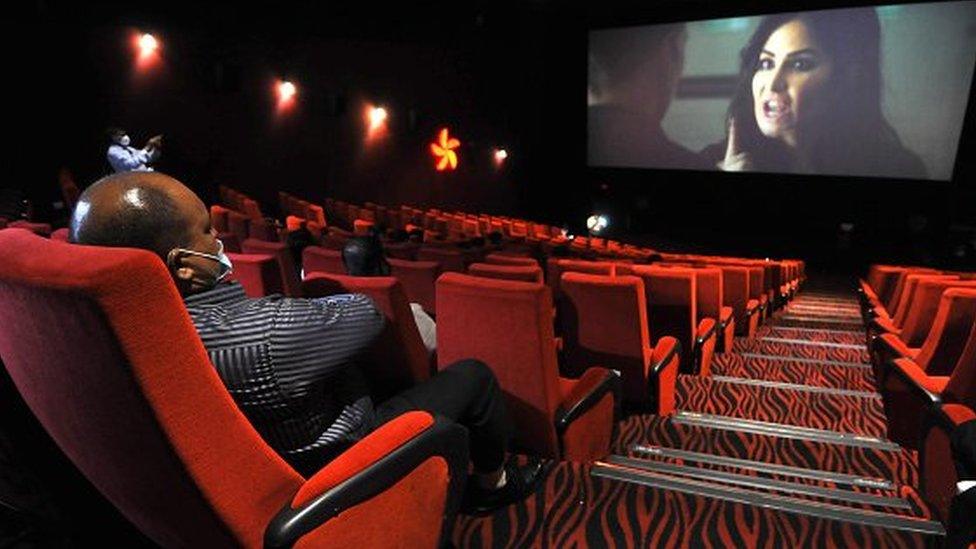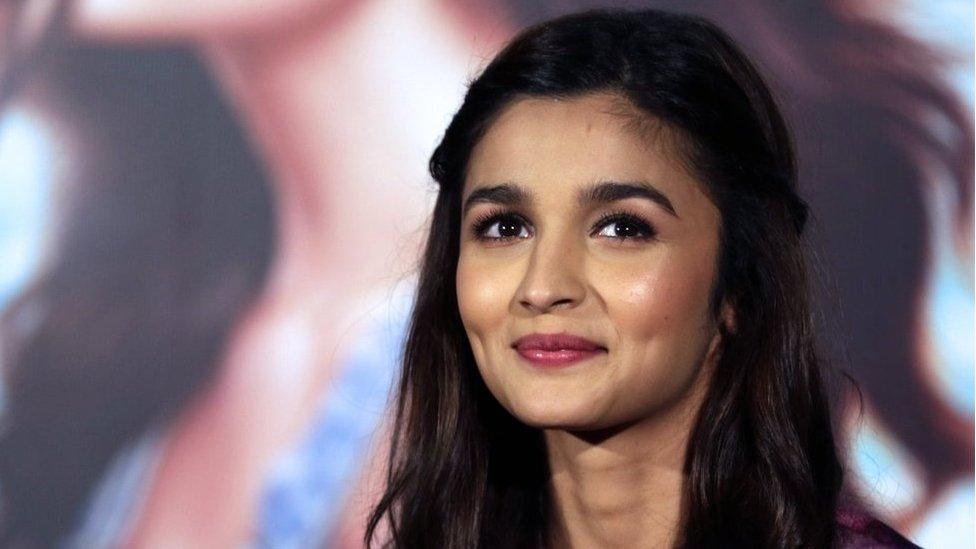Bollywood: Filmmakers cry foul over censorship proposals
- Published

Filmmakers in India have battled censorship for decades.
India's top filmmakers have protested against proposed rules that they say will give the government sweeping censorship powers.
The changes, if passed, allow the government to "re-examine" a film already cleared by the censor board.
Filmmakers say the proposals are an attack on their freedom of expression.
Films cannot be publicly exhibited in India unless they have been certified by the board, which is based in Mumbai and has regional offices.
Allow X content?
This article contains content provided by X. We ask for your permission before anything is loaded, as they may be using cookies and other technologies. You may want to read X’s cookie policy, external and privacy policy, external before accepting. To view this content choose ‘accept and continue’.

Filmmakers in India have battled censorship for decades. Successive governments, religious communities and right-wing groups have all taken offence.
Films have been banned and pulled from theatres or festivals, often forcing directors to make the necessary cuts and revisions.
The reasons have ranged from allegedly insulting song lyrics to intimate or sexually explicit scenes to controversial portrayals of historical or mythical figures.
Filmmakers fear that the new rules proposed by the Narendra Modi-led BJP government will make the process even more stifling.
Known as the Cinematograph (Amendment) Bill 2021, the proposed new rules will give the federal government certain "revisionary powers".
This means the government can revoke the certification of a film - based on viewer complaints - even if the censor board sees no problem with its content.
The draft bill also has provisions to penalise piracy with a jail term and fine. It also seeks to introduce age-based categorisation of films.
Earlier this week, a group of leading actors and filmmakers shot a letter to the government, opposing the provisions.
The letter was signed by 140 people, including filmmaker Anurag Kashyap, and actors like Nandita Das, Shabana Azmi and Farhan Akhtar.
They said the changes would add an additional layer of censorship that goes beyond the existing process.
"This will also render filmmakers powerless at the hands of the state as more vulnerable to threats, vandalism and intimidation of mob censors," the signatories added.
Allow X content?
This article contains content provided by X. We ask for your permission before anything is loaded, as they may be using cookies and other technologies. You may want to read X’s cookie policy, external and privacy policy, external before accepting. To view this content choose ‘accept and continue’.

However, Shyam Benegal, one of India's most celebrated directors, has said the proposed rules are "fine, [and] there are no major problems".
"If a film is given a certificate, it does not mean that it is forever...So, there are some things that have been valid at one time [in the past] and they may not be valid today. So recalling films [for another review] is not a big deal," Benegal told Hindustan Times, external newspaper.
Mr Modi's government has come under increasing criticism from rights activists and opposition leaders for allegedly censoring free speech and stifling dissent.
Even OTT platforms such as Netflix and Amazon have faced the wrath of officials, some of whom even registered police complaints against the company's executives. The government has also introduced new rules asking technology and social media companies to take down content if asked by law enforcement or judicial bodies.

Why censorship has become a major source of frustration for filmmakers in India

Related topics
- Published18 July 2016

- Published7 April 2016
